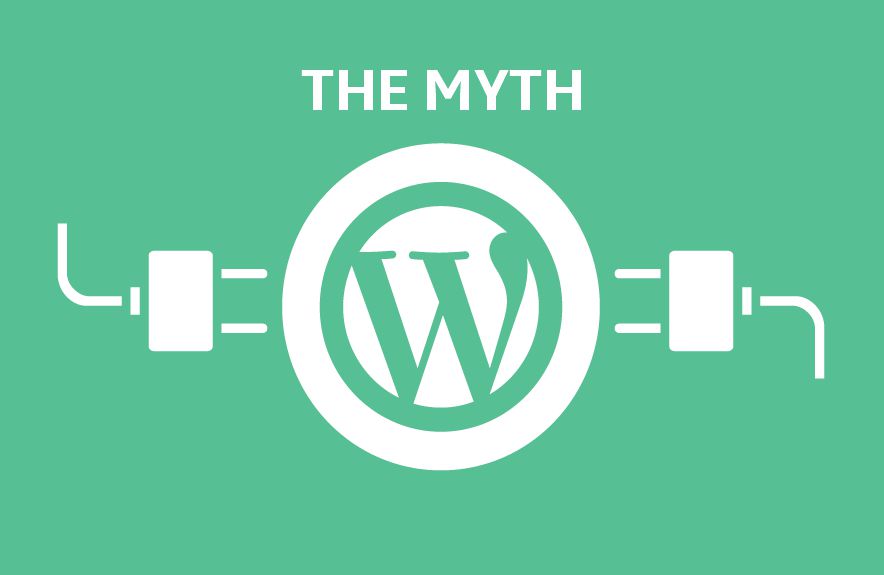WordPress is a goliath of a CMS, there’s no doubt about that. Powering over 34% of websites on the internet, it’s a gigantic platform used by people from all walks of life, with this WordPress Myths is a must-talk-about.
Because of its popularity, WordPress is not exempt from criticism. While constructive criticism is indeed useful, it still faces backlash in terms of what it can actually do.
Many have dubbed it as “that one blogging platform” or that “alternative to Blogger”. Well, nothing could be further from the truth.
In this article, we’re going to debunk some of the myths associated with using WordPress.
If you’ve heard of these myths and are wary of using WordPress, hopefully this article will make you think otherwise.
So, let’s begin.
WordPress is a Bloggers Plaything
The first myth we’re going to address talks about WordPress being a blogging “toy” for beginners.
While there is some truth to the fact, it’s also important to note that many enterprise-level companies and even governments use the platform.
It’s a popular platform, to say the least. Compared with competitors like Joomla and Drupal, both of whom have a 1.73 and 2.9 percent of the market share, WordPress towers over them by a significant margin.
Plenty of bloggers use WordPress.com, which is different from WordPress.org and it’s because of this version that many consider it less than worthy of a platform. But those that want to add more robust functionality to their platform use WordPress.org.
Don’t take our word for it, take brands like TechCrunch, Beyoncé, and MTV News who have used WordPress as the CMS for their brands. It’s liked by many because of its open-source features that enable you to edit, customize, and enhance any part of your site.
The best part about its inherent nature is the fact that you can download the software in any way you want since at its core it’s not close-ended.
WordPress Is Bad for Ecommerce
Many would have you believe that WooCommerce (WordPress’ eCommerce plugin), is not suited to support eCommerce operations. That’s an exaggeration.
If you’re looking to start up your eCommerce store, there is no better choice to have than WooCommerce. Powering 26% of all eCommerce stores, the platform has a steady reputation of being easy-to-use, and simplified for the non-technical store owner.
Now, let’s start with the second misconception: WooCommerce can’t scale.
Yes, you can run into scaling problems with WooCommerce. However, store owners can quickly circumvent those problems by investing in a good hosting service. Web hosts like WP-Engine specifically provide hosting services tailored for WooCommerce.
So, scaling with WooCommerce isn’t as tough or “non-existent” as critics say it is. If you have a budget, then scaling using WP-Engine can be a walk in the park.
WordPress Has No Support
We’ve already established that WordPress is open-source and freely available for anyone to own.
This statement brings with it the criticism that, “because it’s open source, it has no support”. If you believe that, you wouldn’t be wrong. But you wouldn’t be right either.
While it does not have a dedicated customer support system, the ever-active community of WordPress developers, content producers, marketing specialists, and support reps, among others, will be ready to support you with any particular problem you run into on WordPress.
The WordPress community platform is dedicated towards helping webmasters and store owners solve their problems. If you have a WordPress-related problem, chances are, you’ll already find a solution on the platform. If not, ask away and pretty soon you’ll get a response.
WordPress is a “Trend”
This is one of the most popular misconceptions about WordPress. Being unfamiliar with the architecture of the program, they consider it a “trend” that’s bound to end one day.
But the truth is that WordPress is growing steadily. It’s constantly updated; improved and optimized for security and performance. Moreover, the satisfied fanbase has convinced many to switch towards WordPress because of the level of functionality that it provides.
Because of this, the myth of WordPress being a “fad” is far from the truth. WordPress’ popularity has enabled its developers to create a company around it. That company’s name is Automattic.
While the reasons for formation of Automattic are focused on the legal avenues of software development, WordPress itself is developed outside of the company by the WordPress Foundation.
WordPress’ Themes Look Alike
Taking the layouts and designs of WordPress themes at face value, some critics have labelled their themes redundant.
Yes, while all the themes look alike for the most part, it does not imply that it will look the same when it goes online.
There are plenty of customizations you can perform on WordPress. With tools like Elementor and Beaver Builder at your disposal, the sky’s the limit to how much you can customize your basic website from the point of installation to when you finally go online.
Besides the two website builders mentioned above, WordPress offers a wide range of free and paid plugins that add serious value to your website.
Matter of fact, there are plenty of WordPress Developers whom you can employ to customize and enhance your site the way you want to.
Final Words
WordPress is undoubtedly one of the best platforms on the internet. It provides unmatched functionalities that aren’t seen in most other content management systems.
If you’re still worried about selecting a platform and are confused by these myths, then it’s best to look at it yourself and see the platform from an unbiased perspective. Understanding how it works, it’s pros, and cons can put you in a better position when you go about selecting the platform.
ThemeKraft offers the opportunity to create content for us. Guest Post







0 Comments